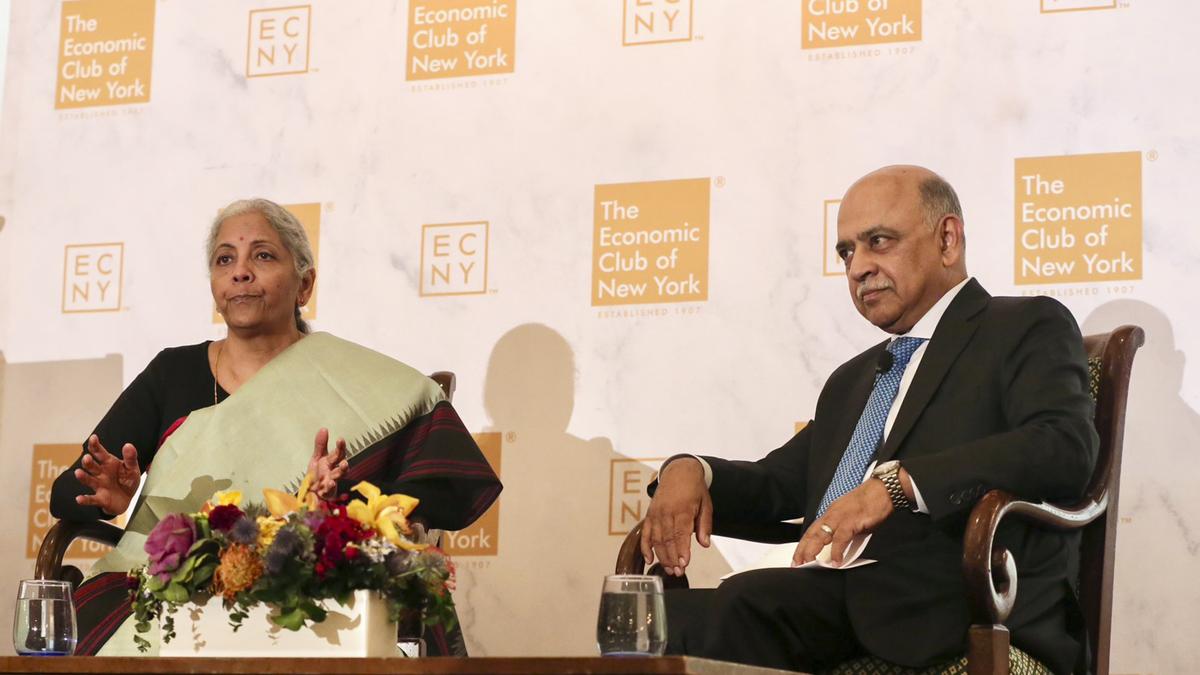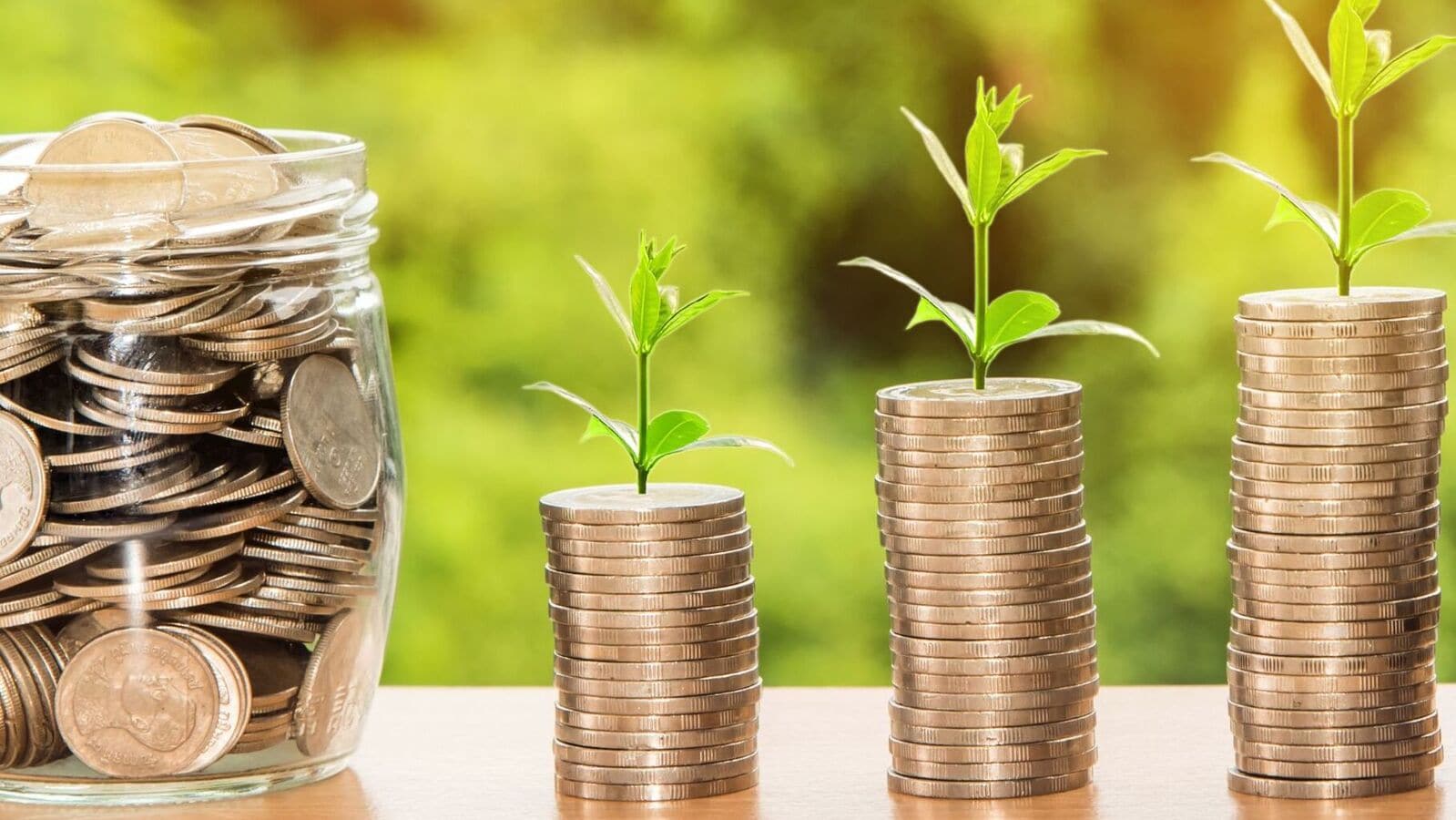The global economic environment may pose challenges, but India is well positioned to take advantage of new growth opportunities, Finance Minister Nirmala Sitharaman said. He underlined that as countries reevaluate their supply chains, India hopes to become an important partner for many countries looking to diversify. their sources of goods and services.
Ms Sitharaman made these remarks on Monday (October 21, 2024) while delivering a special lecture on ‘India’s Economic Resilience and Prospects Amid a Challenging and Uncertain Global Environment’ at Columbia University.
Also read: GST Council looks at rates item by item for rationalization: Nirmala Sitharaman
She said India aims to enhance domestic capabilities and build resilience to external shocks.

“While global growth in recent decades has been led by broad multilateral trade, the coming years, I believe, are likely to be defined by strategic economic partnerships and India is very well prepared to benefit from this transition.” She said the global economic environment may pose challenges, but “India is well positioned to take advantage of new growth opportunities.
“The shift to a more fragmented global economy, characterized by redefined alliances and changing trade patterns, could actually work to India’s advantage. As countries reevaluate their supply chains, India hopes to become an important partner for many countries looking to diversify their sources of goods and services,” she added. International and public affairs.
Also read: India will become the third top economy within a few years, says Nirmala Sitharaman
Ms. Sitharaman arrived in New York on Sunday (Oct. 20, 2024) from Mexico, where she chaired the Tech Leaders Roundtable in Guadalajara. She had also visited the TCS headquarters in Guadalajara.
In New York, she addressed a roundtable on ‘Investment Opportunities in India’ at the New York Stock Exchange and participated in a fireside chat on India’s decade of economic reforms and economic growth with IBM Chairman and CEO Arvind Krishna.
From New York, Sitharaman will go to Washington DC to participate in the annual meetings of the International Monetary Fund (IMF) and the World Bank, the 4th G20 Meetings of Finance Ministers and Central Bank Governors (FMCBG), in addition to the G20 Joint Meeting of FMCBGs, the Ministers of Environment and the Ministers of Foreign Affairs; and G7 – Ministerial Roundtable in Africa.
Ms. Sitharaman noted that it may be an understatement that “we live in times of great uncertainty, which is steadily ahead of us.
“Today’s world is grappling with multiple challenges, such as the conflict in the Middle East and between Russia and Ukraine. There is also the possibility of other destabilizing events such as dollar liquidity shocks, increases in global rates due to trade wars, and oil price shocks – all at the same time. In addition to these events, the emergence of a real Chinese trade conditions, as a shock, has made it necessary for countries to take measures to safeguard their domestic production,” she said.
She emphasized that despite an increasingly complex global environment, India’s macroeconomic fundamentals remain “sound” and act as a strong foundation on which future growth can be built.
She said India was the tenth largest economy in 2013 and is currently the fifth largest economy.
The International Monetary Fund has predicted that India will be the third largest economy by 2027. “India’s contribution to global growth is expected to increase by 200 basis points over the next five years,” she said.
She further emphasized that Indian trade policy has also undergone significant reforms, with an emphasis on facilitation and greater integration with key economic partners. India is promoting a more competitive and export-oriented economy by pursuing free trade agreements with countries such as the UAE and Australia, in addition to initiatives such as the Production Linked Incentive programs and One District One Product programs.
“Moreover, India must continue to strengthen its position in the geopolitical landscape. As the world undergoes a realignment of power dynamics, emerging economies like India will have to forge complex international relationships. This would require a nuanced approach to diplomacy, balancing economic interests with strategic interests.”
She said India’s rise in the Global Innovation Index and its growing influence in sectors such as high-end capital goods, renewable energy sources and pharmaceuticals point to India’s potential to become a vital player in global markets.
“Another key aspect of the policy agenda is strengthening India’s financial sector. The soundness of our banking system, characterized by low NPAs (non-performing assets) and improved provisioning for bad loans, reflects the reforms we have undertaken to improve asset quality,” she said.
She added that in 2047, when India celebrates one hundred years of independence, “India will have the opportunity to define a new era of prosperity, not only for our own citizens, but also for the global community.
“India’s role in the world is expanding, and we stand ready to work constructively with the international community, share our innovations and contribute to global peace and prosperity,” she said, addressing the cited the example of the COVID-19 pandemic in which India supplied vaccines developed and manufactured by it to countries around the world.
“The coming decades will be defined by how effectively India manages its demographic dividend, strengthens its global partnerships and navigates the complexities of a rapidly changing world. While there are challenges ahead, there are also plenty of opportunities for India to take the lead, not just in economic terms, but also in shaping the global discourse on technology, sustainability and inclusive growth,” she said.
Published – Oct 22, 2024 11:21 AM IST











